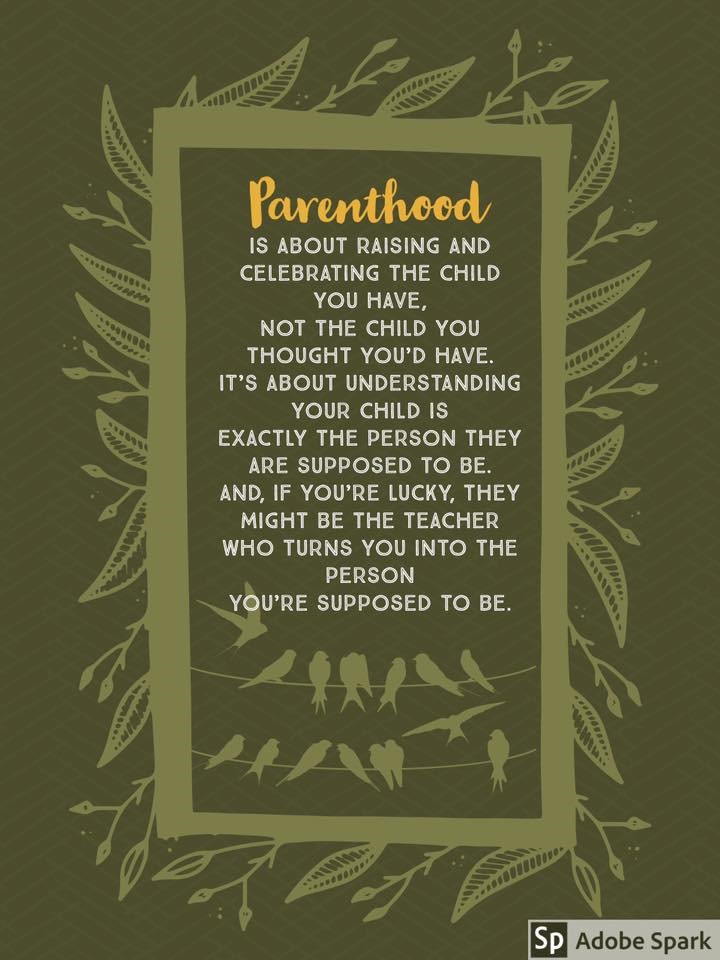I came across this quote on my Facebook page this week, a gif shared by the BrainPower Neurodevelopmental Center in Newburgh, Indiana.
At first, I thought about my home situation; the older my sons become, the more I realize they are their own selves. What a myth to believe that kids become what parents ‘make’ them! Even if you raise them in a totalitarian environment, their personalities will surface (I hope!) and they will emancipate themselves to become who they truly are!
However, the second part of the quote was what really got me thinking, the part about children teaching their parents so they can become what they, as parents and people, can become.
I suddenly mentally flipped over to my classroom situation. My students, too, are what they are supposed to be, not what I thought they’d be. Oh, so what have they taught me then to help me become a better teacher and, ultimately, person? Certainly, a lot! Here are just three examples.
Lesson #1: You don’t have to know everything.
Teachers know that questions are a sign of intelligence. I always say it is the door opening to understanding. I get excited when students ask questions; it means they are ready to learn, and they are going to ‘get it’. The brain is processing the data. Cognitive psychology explains that the more the brain processes the information, the more likely it is that the individual will develop the neural pathway and maintain the information in their long-term memory. Deeper learning means greater mastery and that leverages competence.
Yes, but sometimes a question comes up that you just weren’t anticipating and just don’t have the answer. You don’t know. Brain freeze! No matter how much you search your brain, the answer is just not there. For example, how come ‘theirselves’ is not the correct reflexive pronoun? Not so easy! Some of the forms take the possessive form of the personal pronoun (I – myself; You – yourself). It would seem logical to then say They – theirselves). But that is not the case. It’s just one of those things – something you have to memorize.
You’re almost afraid they’ll ask questions! No big deal. You can’t know everything, so you use that handy phrase: That’s a great question! And then, either follow up with a Google search live, or go home and do your homework so you’ll be prepared with a fantastic explanation next class.
Lesson #2: You don’t have to always be in control.
The other day, I suddenly felt sick during my first of two morning classes. I was sure I was turning green and about to fall of my chair. Catastrophe! I’m the teacher, I’m supposed to be in control! I couldn’t move, and just wanted to put my head down and rest.
The students were great. They offered advice, they suggested I drink some water or go for a walk. When the class was over, the next group came in and continued the good work. They got me laughing. They took over. They first took out their homework and began correcting it with my weak input. Then one of them asked if I had any games. I did, so she went and chose one and got the other two playing. By the end of the class, I felt much better. They were wonderful.
The concern, care and initiative of the students blew me away. It also reminded me that I didn’t always have to be the boss. After all, what is student-centered learning all about? Students take ownership of their learning. The teacher is just there to guide and facilitate.
Lesson #3: It’s okay to not be perfect.
Perfectionism is the bane of the teacher. We want everything to be just perfect (you know, a perfect A, 100%): the lesson plan, the presentation, the activity, the materials, even our appearance! But sometimes you just don’t have the time to get it Just Right. Anxiety attack! And the quality of the lesson goes downhill from there!
Last week I asked a student what their lesson of the day was. The student answered: stop thinking, start doing. An enriching discussion ensued.
Once again, it was the disciple teaching the master. Do what you can with what you have. You don’t have to be perfect; be real, drop the ego, and enjoy the discovery of learning with your students.
In conclusion, maybe the people, places and events around us are not the way we expect but are rife with lessons to learn. Accepting, acknowledging and appreciating them for the truths they reveal, is not easy, but part of adapting to the ever-changing nature of life.
Does this resonate with you? Please let me know in the Comments section. I love hearing from my readers!
Cheers!
Claire :o)
*Photo and link to BrainPower Neurodevelopmental Center : https://www.facebook.com/BrainPower-Neurodevelopmental-Center-889931051105659/?tn-str=k*F



2 responses to “3 Lessons My Students Taught Me”
3 great lessons, and also part of why I love teaching adult learners! Working with kids, there’s this myth that teachers are these omnipotent, omniscient beings, and after a while I think many of us start to believe it. But teaching talented professionals is so much more grounding and collaborative because your role is more advisory – you’re the subject matter expert. I love when a student challenges me to find a different word for their presentation, or a less diplomatic way to get their message across. I feel like I’m actually helping to find a solution instead of just citing the answer in the back of a book.
LikeLike
Absolutely, Sarah! Well-said – helping them find solutions and contributing to their professional success. Thanks for commenting! – Claire :o)
LikeLike